INA to Donate HRK 1.4 Million To Healthcare Sector
ZAGREB, 5 May, 2021 - The INA oil company will donate HRK 1.4 million to healthcare institutions this year, aware of the exceptional circumstances that the system is faced with due to the coronavirus pandemic, the company said in a press release on Wednesday.
In the wake of last year's earthquakes in Sisak-Moslavina County, INA has donated HRK 500,000 to the Sisak General Hospital and an additional HRK 900,000 to other institutions.
INA plans to donate HRK 150,000 each to the Oncology Department of the Hospital for Children's Diseases in Zagreb and the Clinical Hospital Centre (KBC) in Rijeka as well as HRK 100,000 each to KBC Osijek, the tissue and cell bank at the Sisters of Mercy Hospital in Zagreb, the Hospital for Infectious Diseases in Zagreb, the Cardiology Clinic in Split and two civil society associations.
The Sisak Health Care Centre and the Special Children's Hospital in Gornja Bistra will receive HRK 50,000 each.
The donations are intended for the improvement of diagnostics, procuring new equipment and improving accommodation for patients and working conditions for medical workers.
In addition to money donations, the hospitals will receive a total of 500 litres of INA's Dezinol disinfectant which was developed by INA during the pandemic.
In the past 10 years INA has invested HRK 6.5 million in healthcare in Croatia.
(€1 = HRK 7.5)
For more about business in Croatia, follow TCN's dedicated page
Health Minister Vili Beroš Expects Hospitals To Provide Patients With Medical Services
ZAGREB, 4 May, 2021 - Health Minister Vili Beroš on Tuesday said that the solution to acute problem of the shortage of radiologists in two hospitals in Zagreb was within the responsibility of those hospitals and that he expects those institutions to provide patients with appropriate and immediate health services.
"The solution to the acute problem of the shortage of radiologists at the Sisters of Mercy hospital and the clinic for treating cancers, which is part of that health institution, is up to the administration at the hospital and I expect them to provide all the patients with the appropriate medical services, and in particular oncology patients and those with grave diseases," said Beroš.
He underscored that patients have to be above organisational problems of an institution.
Beroš underscored that patients must not be left without services because of organisational problems or human relationships.
"That's my clear message to directors and all their associates who are responsible for managing those processes in hospitals. Problems have to be resolved," said Minister Beroš.
He added that Croatia has an increasing number of younger radiologists with experience in working in clinical centres and health institutions that could be the core of creating a system based on the example of developed countries with advanced health systems.
"Creating an efficient system of radiology services at the country level that could provide efficient, quality and financially rational services to a larger number of health institutions that are faced with a shortage of staff such as radiologists, which surfaced in the Sisters of Mercy hospital, are an inevitable step towards resolving this and similar problems," he underscored.
He underscored that as Minister of Health he has already "launched certain activities to provide organised radiology services based on the experiences of other countries that have proved to be efficient and economically justified and are appropriate to our needs and capacities.
For more about health in Croatia, follow TCN's dedicated page.
Opposition Parties File Motion of No Confidence in Health Minister Vili Beroš
ZAGREB, 4 May, 2021 - Parliamentary opposition parties have filed a joint motion for a vote of no confidence in Health Minister Vili Beroš over the accumulated problems in the healthcare sector and scandals related to the minister, Social Democratic Party (SDP) leader Peđa Grbin said on Tuesday.
"The reasons for this move are clear to all citizens - the accumulated debts in the healthcare system resulted in the suspension of deliveries of medicines to hospitals at the height of the pandemic. There are also huge problems with the vaccination system, and we have learned of favourable treatment in the development of the cijepise.hr vaccination registration system," Grbin said.
"The development of this non-functioning system was awarded to people connected with Minister Beroš. There are also suspicious public procurement procedures at the Health Ministry such as one where IT services were awarded to a florist and tenders were fixed for former HDZ health ministers Andrija Hebrang and Neven Ljubičić, which have been cancelled but only after media started writing about them," he added.
"The Health Ministry is simply not functioning. There are no reforms, and the extent to which this affects people's lives could best be seen in a recent case at the Clinic for Tumors where citizens suffering from malignant diseases could not receive adequate care," Grbin said, naming Beroš as the person most responsible for this.
"We want Beroš to go because right now he has done nothing positive for the healthcare system, and all the negative things he has done pose a direct threat to people's health and lives," the SDP leader said. "His departure, however, will not be enough and we will all have to come to grips with the accumulated problems together."
Grbin said that a discussion on Beroš must be held within 30 days, and whether it will be held before or after the 16 May local elections "depends on Prime Minister Andrej Plenković and Parliament Speaker Gordan Jandroković."
The initiative was signed by all opposition groups in parliament except the Croatian Sovereignists, but they have announced that they will vote in favour Beroš's resignation, Grbin said.
MOST's Nikola Grmoja said that his party had been warning for a long time about the problems faced by the healthcare system, including huge debts to drug wholesalers and long waiting lists.
"Beroš, of course, is not the only one to blame, the whole government is responsible. With our signatures we also want to encourage a reform of the healthcare system. All of us in the opposition agree that changes are necessary and should be launched urgently," Grmoja noted.
Sandra Benčić of the green-left We Can! platform said that they supported all the reasons for a no-confidence vote in Beroš, but stressed that the responsibility for the crisis in the healthcare system and the poor management of the coronavirus pandemic mostly lay with Prime Minister Andrej Plenković.
"None of the ministers, and certainly not Minister Beroš, makes decisions on their own. They were not chosen as competent persons in their departments but were chosen based on their loyalty to the prime minister who ultimately makes all decisions. The prime minister cannot be exonerated by his purported unawareness of the scandals for which we seek Beroš's resignation. That's why we ask whether the country can be run by a prime minister who does not know or who does not get key information," Benčić said.
Homeland Movement MP Stjepo Bartulica said that the Croatian healthcare system was too politicised. "There are countless problems and the possible resignation of Minister Beroš will not change things much. We have insisted from the start that the healthcare system should be governed by market principles because now we don't see any mechanisms that will bring about change to the system as this government resists structural reforms," he said.
For more about politics in Croatia, follow TCN's dedicated page.
Health Minister for Reorganising, Adapting to New Circumstances After Quake
ZAGREB, 2 January, 2021 - Health Minister Vili Beros said on Saturday the ministry's task was to reorganise healthcare in the wider area hit by Tuesday's devastating earthquake, adding that it was necessary to adjust to the new circumstances and transfer patients to hospitals in Zagreb to "receive the adequate assistance."
Speaking to the press while visiting the Sisak General Hospital, which sustained extensive damage, Beros thanked its staff for receiving 32 patients and conducting over 90 checkups since the tremor.
Petrinja hospital temporarily unusable
The minister said "unfortunately... the building of the hospital in Petrinja is temporarily unusable and can't be made functional quickly in any way."
He said enough rapid antigen tests for coronavirus had arrived in the quake-struck area. "Over 1,500 vaccine doses have been ensured. Given that new doses are arriving on a weekly basis, it's certain that we will adapt to the new conditions and that as many doses as necessary will be reallocated for this county."
Beros said he did not expect everyone there to be vaccinated but that he would appeal that as many people as possible did to prevent the epidemic from spreading. He added that it took three to four weeks to acquire immunity, underlining the importance of vaccinating people as soon as possible.
Emergency medical aid containers set up
The minister said containers for emergency medical aid were set up in Petrinja because the local hospital was demolished.
"We are adapting to the circumstances. The ministry has instructed all health centres and family doctors to adapt to the new circumstances," he said, adding that medicines would be delivered to people with chronic diseases who lost their homes.
The director of the Petrinja hospital, Tomislav Dujmenovic, asked the contractors building a new hospital building to resume their work as soon as possible, saying the new building would solve all their problems.
Croatian Healthcare Workers: Christmas's Forgotten Heroes?
December 28, 2020 – Amidst the difficulties of a second lockdown, a socially distanced Christmas and yet more earthquakes, have we forgotten about Croatian healthcare workers? TCN decided to interview a doctor working on the front line of the fight against COVID
During the first lockdown, it was all about the balconies. Saxophonists, DJs, opera singers – we were entertained on social media by a string of balcony-based stunts that somehow showed resilience, community spirit, humour. Zagreb was no exception. A trend of clapping on balconies in appreciation of healthcare workers passed from country to country and was picked up in Zagreb. After the applause finished, people went back inside. Nothing much had changed. It was a nice enough gesture.
Since the start of summer, no such applause has been heard. Perhaps the release from lockdown gave the signal that the lives of Croatian healthcare workers had also become much easier? That certainly wasn't the case. Though the number of people infected with COVID has grown significantly over recent weeks, Croatian healthcare workers have been treating people sick with COVID since springtime.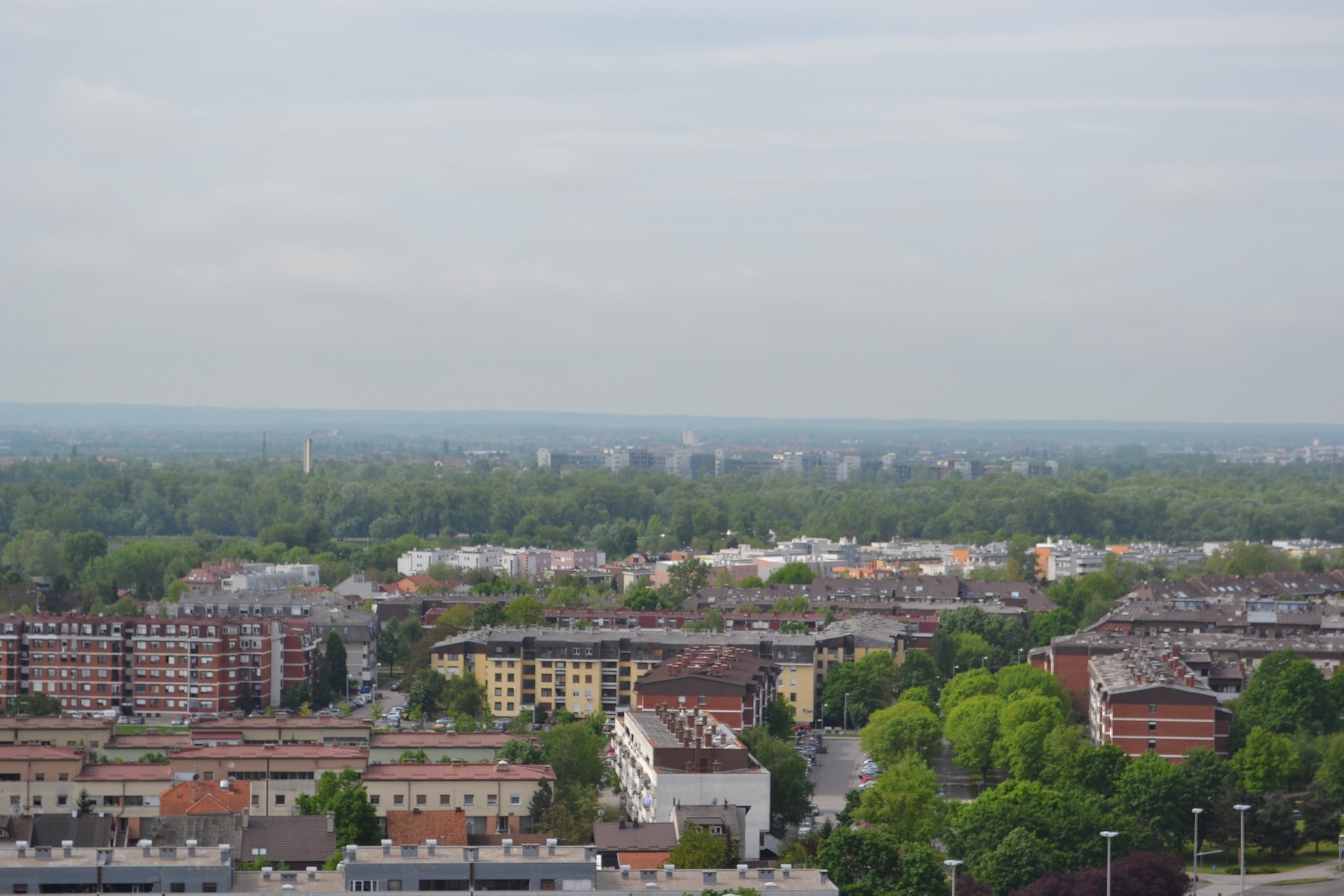
Croatian healthcare workers are currently busier with COVID patients than at any time before. And yet, there are no more trips out onto the balconies to show our appreciation for them. Perhaps it's now too cold outside? Perhaps some aren't aware how busy Croatian healthcare workers currently are with COVID patients? Are we perhaps guilty of taking Croatian healthcare workers for granted? Or, maybe we have simply put Croatian healthcare workers to the back of our minds as we struggle with our own challenges?
Throughout this year, TCN has been pleased to report many instances of generosity and innovation directed towards the fight against COVID. Certainly, not everyone in the country is guilty of forgetting about the Croatian healthcare workers who are on the front line fighting this disease. But, how much impact do these instances have on the general lives of Croatian healthcare workers? What is it like to no longer hear the nightly appreciation from our balconies? And, just what is life like as one of the many Croatian healthcare workers battling COVID in the year of the pandemic? TCN decided to interview one to find out.
The doctor we spoke with is a resident physician, working at a smaller community hospital in the continental part of Croatia. They agreed to speak with us on the condition that they do so anonymously.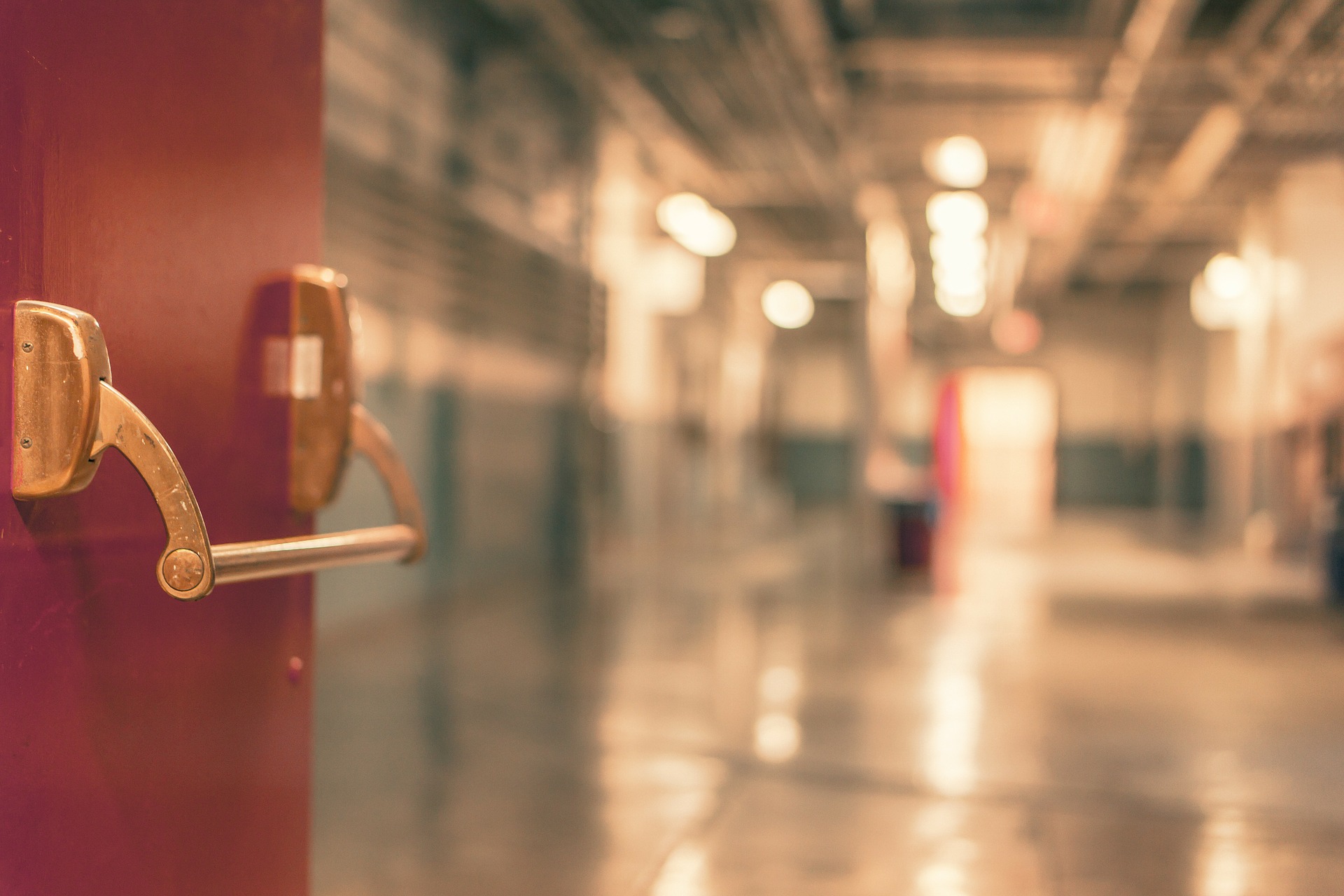
Looking back at the first lockdown, we didn't know so much about COVID back then. We didn't know exactly how it was spread, the different manifestations of the disease, what course the disease took, nor what the recovery could be like. I think the government did a really good job of responding to the threat as they saw it. We had a small spike in cases, but that is minuscule to what we have now.
I think people generally did what they were told because they thought it would be temporary and they could see the sense in starving the disease out.
At the hospital, we were at first caught a little off guard with the amount of PPE we had and some other resources that we needed. For ICU and ventilators, we were well equipped.
Some of the residents were given some paid leave. It was important to put human resources into tiers. Croatian healthcare workers were certainly more predisposed to catching the disease, simply because they were around it every day.
After such great early successes, I was surprised that everything was relaxed later on to allow the tourist season to take place how it did, and for events like the Vukovar commemoration. It felt like it was a calculated risk. The lockdown we are now in is perhaps too little, too late. The disease is out there now, wild. The numbers of infected people are significantly higher.
The difficulty with this disease is that people can be infected and have very few or no symptoms at all. They might not know they are spreading the virus. You might not know you're sitting next to someone who has it.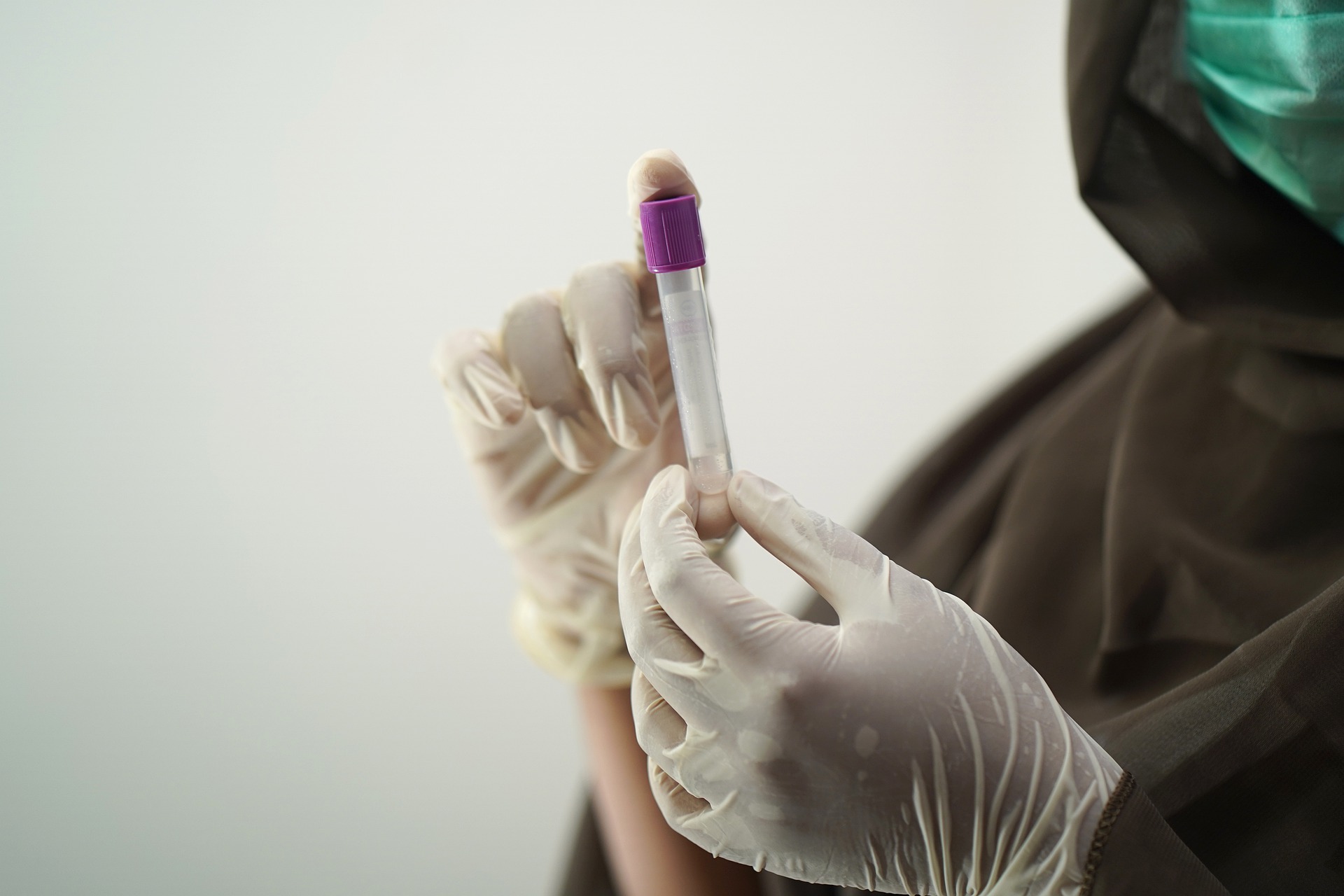
Even though we're not at the centre of care for a major population area or city, we saw cases of the disease almost immediately. Our community hospital services an area containing around 150, 000 people. The first cases in April came from nursing homes – elderly, vulnerable people, many with pre-existing conditions. We were well equipped to handle it. Now, we are stretched on a daily basis. We fill the beds with sick people as soon as we empty them.
We wear masks and PPE all day, all the time. All Croatian healthcare workers in hospitals currently do this. Every patient who comes in, regardless of their symptoms, we treat them as though they are carrying the disease.
A lot of residents like me, who are working towards getting their specialty, go to do some periods of work in larger hospitals in the bigger cities. Now, many of those residents have been called back to their community hospitals – we are short on human resources.
The hospital has had to restructure itself significantly. Lots of doctors have been asked to provide cover in the emergency department. Over half of that area is now fully dedicated to COVID.
What do COVID patients look like in regards to their symptoms? It depends on their age and risk group, but you see people who look like they have flu or bacterial pneumonia, you see people who are in acute respiratory distress. Sometimes they have neurological changes, some of them look like they have had a stroke. Some people who have been infected and have supposedly got over the worst of the symptoms, come back in after a month or two with blood clotting problems – blood clots in the legs, which have a tendency to travel up to the lungs and cause a pulmonary embolism. That's a pretty big medical emergency. Some who have pre-existing heart conditions come in with a heart attack triggered by them catching COVID – it's more complicated trying to revive someone when you know they have COVID. The presentation of the disease is so variable.
It's not only older people. I've seen young people be admitted with serious reactions to COVID - young, healthy people who have no pre-existing conditions. I've seen young people come in with mild symptoms, they are sent home with antibiotics and steroids. That is the standard treatment – antibiotics to prevent a bacterial super-infection and steroids to prevent an acute reaction by the body's immune system to COVID. - that's what can cause big problems later on, in the course of the illness. But, sometimes that's not enough. I had a young patient just last week - super healthy, worked out regularly, no pre-existing conditions – and his lungs just looked awful. He had to go to the ICU immediately (sadly, this patient later died). That's like no disease I've ever seen before. Really, COVID is a completely new kind of animal.
The new strain of COVID? There is evidence that it can be spread more easily, and that it can affect more younger people, but there is no evidence that it is any more severe. The vaccines will work against it.
We're short on ventilators now. Really, we need two free ventilators at any time, in case there is an emergency admission. We are not currently in the position where we always have two free ventilators – sometimes they are all in use. That's a worry. I worked one shift where the anaesthesiologist said “We just don't have any more space for them – we will just have to put them in the hallway”. I've never seen that before.
I've heard of Croatian healthcare workers, colleagues in other hospitals getting sick with COVID and the hospital asks them to prove they got sick at work. It's pretty clear that's the most likely place they would have got sick because they're working with COVID patients. They were forced to be off work, but only on a lower level of sick pay. If you get ill because of being at work, you get full pay. But, they couldn't prove it, so they didn't get that.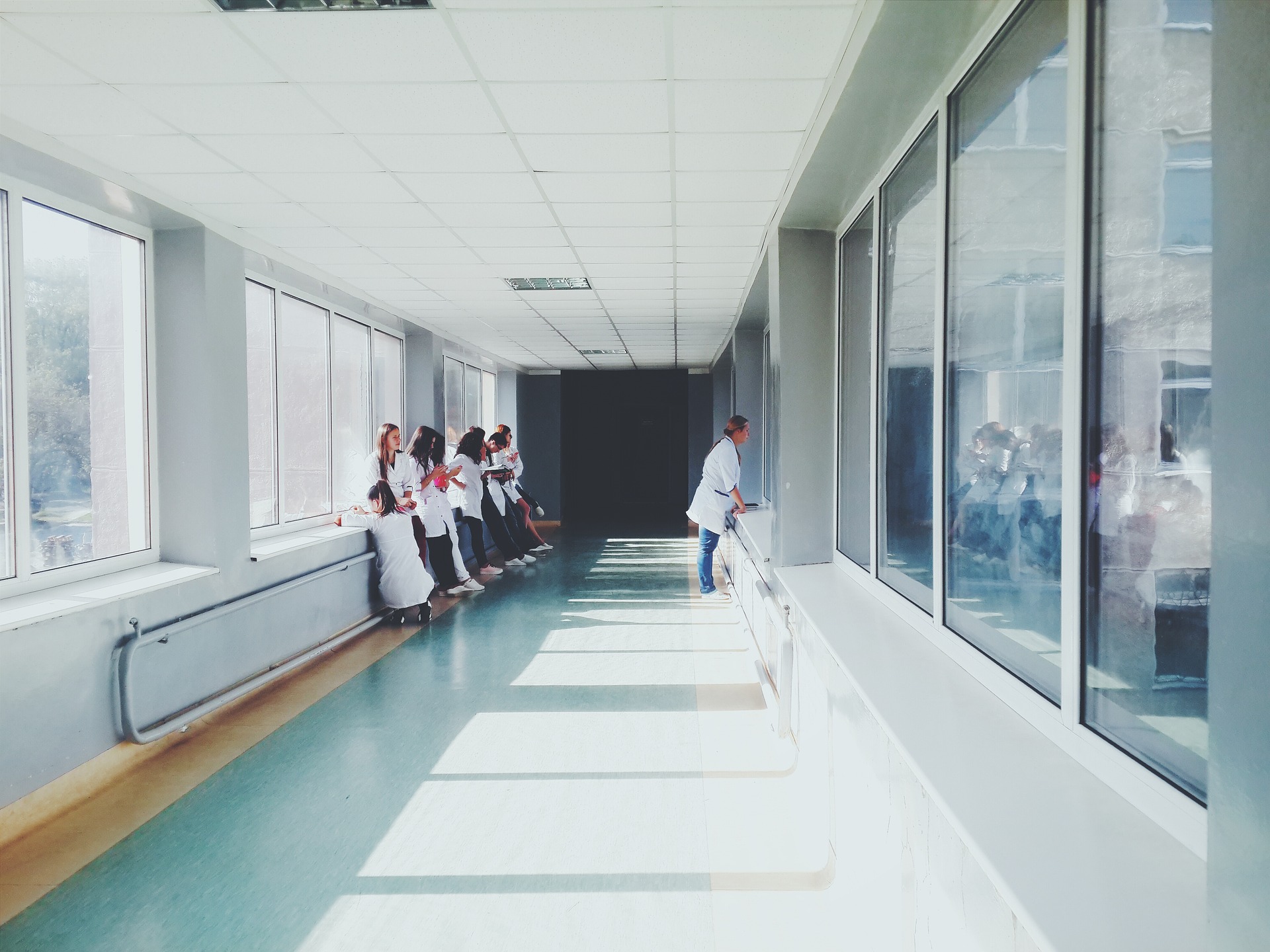
I've been lucky – I haven't caught COVID yet. Well, as far as I know. My pay hasn't gone down, it's gone up – but only because I'm working so many double shifts. I volunteer to provide cover when other members of staff get sick. The specialists – the consultant doctors – they have it worse than us resident doctors. They are more responsible, so they are expected to work more hours. Nobody is pressured or threatened into picking up extra shifts, it's just something that almost all of us just do.
I've read some nice stories about fundraising efforts and donations to Croatian healthcare workers and hospitals in different parts of the country. Everything is appreciated. But, I personally haven't seen any effect of that on our day to day lives at work. Not at our hospital. Maybe there were PPE donations or cash donations, but it hasn't impacted the daily lives of me and the Croatian healthcare workers who are my colleagues. I think I heard that a local garage was giving free cups of coffee if you show your medical ID. Every little is appreciated.
For me and the Croatian healthcare workers who are my colleagues, instead of any kind of personal discounts or donations to staff, we would much prefer if people just took this disease more seriously. Things look very different when you work in a hospital compared to someone outside who maybe doesn't know anyone who got sick.
I came off a particularly difficult double shift a couple of months ago – it was just non-stop COVID admissions, some severe cases. As I was walking home, I walked past a bar that's near to the hospital. They had signs on the walls telling people to keep their distance. But, the bar was absolutely packed – full of young people. It just felt so disappointing. I couldn't help but think of the older relatives they would come in contact with, some who might get really sick.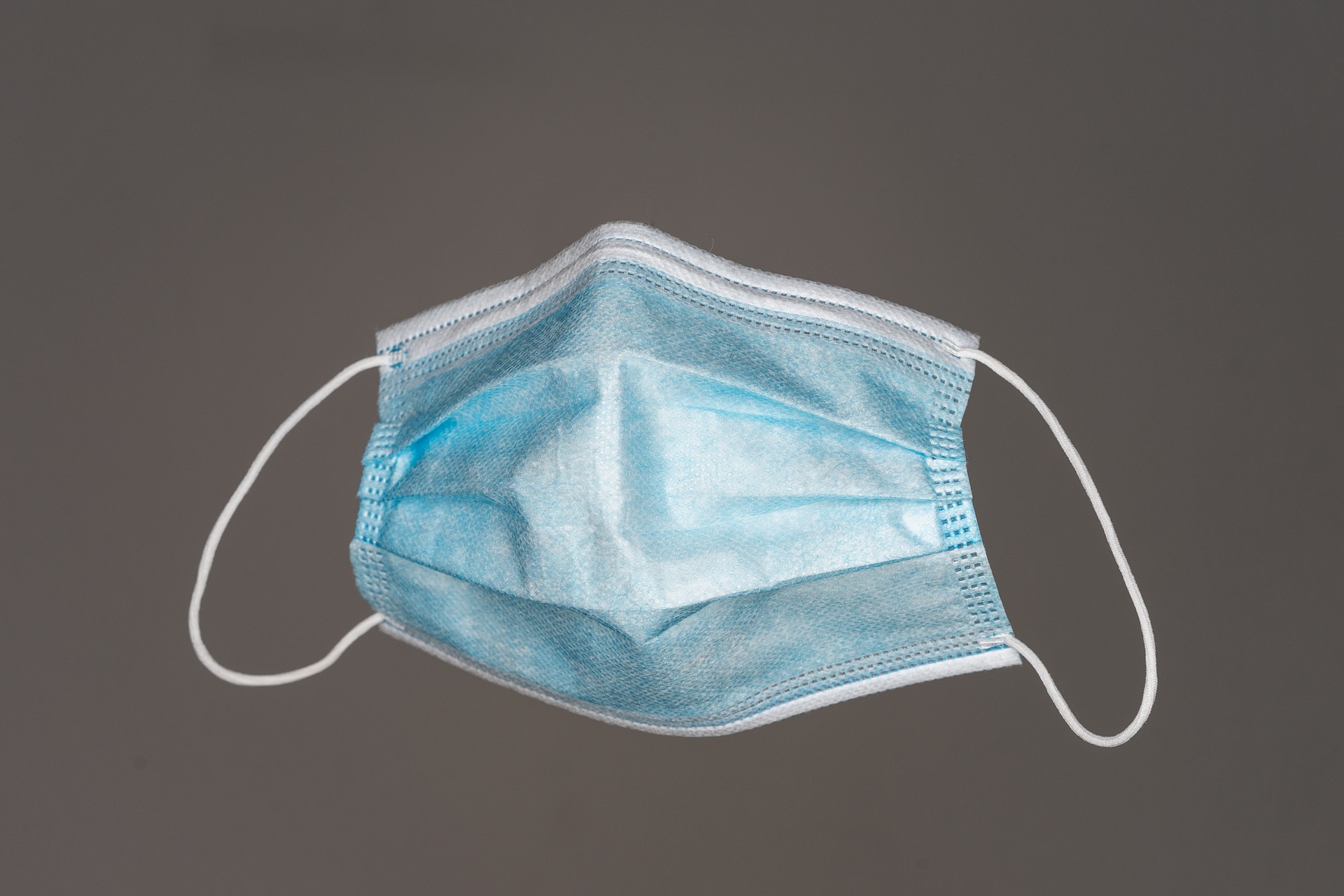
Instead of people clapping on balconies, I think Croatian healthcare workers would just prefer more general vigilance and personal responsibility – wear your mask, wash your hands regularly, no more parties in the basement. Clapping on balconies is a nice gesture, but ultimately it's an empty one.
How does it feel to know that there are some people out there, in every country, all around the world, who believe COVID is a hoax, or a plot, or not so serious, or that the vaccine is dangerous or something other than what it is?
Well, it's not always the content of the conspiracy theory that appeals to these people as much as it is their inability to accept facts – the truth – because they have little faith in the authorities that are telling them this. Here in Croatia, I think that distrust is quite high – a lot of people are disillusioned with the state and politics, because of corruption. Sometimes over 50% of the population choose not to vote. The dissemination of misinformation over social media doesn't help - if that's where people get their news from. If you look at that example from your own country, where strict measures about movement were put in place by your government, and immediately afterward, the Chief Advisor to the Prime Minister, was caught breaking them to travel across the country with his family to a second home in the countryside, going out on day trips. And he was defended by his colleagues after he was found out! When people see those kinds of things happening, the distrust between people and the authorities just grows.
All of the images in this article are used as illustrations only. None of the places or people depicted are in Croatia or Croatian, except for the first image, a panorama of Zagreb
Bonus Amounting to 10% of Basic Pay for Staff Caring for COVID Patients
ZAGREB, Dec 7, 2020 - The government adopted four decisions on Friday under which public health and social welfare workers catering for COVID patients would be given a bonus in the amount of 10% of their monthly basic pay.
Army medical staff and prison staff looking after COVID patients are also entitled to this bonus.
Health Minister Vili Beros said that medical professionals currently reassigned to COVID hospitals would be given a monthly salary in the amount of their average monthly take-home pay in the last three months before their reassignment to COVID hospitals if that amount is more favourable for them.
This refers to the salaries already paid for November.
The workers concerned have been offered this option after the Croatian Medical Chamber (HLK) warned that some of the doctors reassigned to COVID-19 hospitals received lower monthly pay for November than what they used to be paid before their reassignment.
The HLK has been informed that the November salary for some of the doctors who are treating COVID-19 patients was considerably lower than their take-home pay before they started working with this category of patients. In some cases this reduction was 20%.
The HLK dismissed the "bureaucratic explanation" about them having worked fewer working hours in November, as it has been made clear that the protective gear necessary for doctors working with COVID patients makes it impossible for them to work the full hours specified for that month.
Daily Says Coronavirus Epidemic Weighing on Healthcare Budget
ZAGREB, Dec 7, 2020 - The coronavirus epidemic has been weighing on the healthcare budget, with the cost for the HZZO health insurance institute in 2020 expected to amount to one billion kuna, the Jutarnji List daily reports on Monday.
Over a period of only one week, the costs of the health system related to the coronavirus epidemic have risen by a staggering HRK 80.5 million (€10.73 million), and they are expected to be even higher on a weekly basis in the coming period and exceed one billion kuna by the end of the year, the daily says.
According to HZZO data, the total costs related to COVID-19, which cover the costs of testing, treatment and sick-leave allowances, amounted to HRK 258.2 million in the period from February 25 to September 2.
In the last three months, the costs have tripled and on December 4, they totalled HRK 766.3 million.
Considering the epidemiological situation, the growth of costs is as expected, yet their growth rate, as indicated by a weekly analysis, is higher than the one predicted by experts.
In the week between November 20 and 27, COVID-19-related costs grew by around HRK 50 million, and already in the following week they totalled more than HRK 80 million.
In the first six months of the epidemic, the costs for the HZZO totalled HRK 258.2 million, the daily says.
The newspaper collected the latest data over the past three weeks considering that they are updated every Friday, and according to the latest indicators, in the period between the start of September and December 4, the costs grew by as much as HRK 508.1 million.
Both in the first and the second wave of the epidemic, the cost of testing accounted for the largest portion of the total costs, Jutarnji List says.
(€1 = HRK 7.543619)
Healthcare Employers' Association: System under Strain but Functioning
ZAGREB, Dec 2, 2020 - The healthcare system capacity has been strained to the utmost but the system is functioning, the director of the association of employers in the healthcare system, Drazen Jurkovic, said at a news conference in Cakovec on Wednesday.
Earlier on Wednesday, a delegation of the association visited hospitals in four northern Croatian cities -- Varazdin, Cakovec, Koprivnica, and Bjelovar -- after which they held a news conference to inform the public of their findings.
Jurkovic said that the system was operating at full capacity and was functioning.
He admitted that the biggest challenge in the current coronavirus epidemic was how to organize the health system, adding that problems with drug suppliers had been settled in the short run and that the problem of unpaid overtime in the health sector remained to be solved.
The system is resilient, it can respond to all challenges, said Jurkovic.
The president of the association, Mladen Busic, praised medical professionals -- physicians, nurses and medical technicians -- as well as non-medical staff in the four hospitals for their extraordinary contribution to the fight against COVID-19.
"The healthcare system has not collapsed and will not collapse. We are dealing with this situation and will win and provide all the patients with the necessary care, both COVID-19 and other patients," Busic said.
The head of the Cakovec hospital, Tomislav Novinscak, informed the delegation that currently, 110 COVID-19 patients were being treated in the hospital and that some of them would be transferred to a local hotel that has been repurposed to admit COVID-19 patients.
He added that the situation with the available medical staff was stable.
In Varazdin, the local hospital is treating 257 persons diagnosed with COVID-19, and of the 24 are in intensive care wards. The head of that hospital, Nenad Kudelic, expects hospital capacity to be fully occupied until the end of this week, and that 40 more COVID-19 patients could be transferred to the hospital for medical rehabilitation in Varazdinske Toplice. More than 120 employees of the Varazdin hospital are out of work due to infection with COVID-19 or self-isolation.
Kudelic said that one could not say that the system was collapsing, however, it should be made clear that the current high number of COVID-19 patients required hospital and personnel capacities that would otherwise be used for the treatment of other diseases.
The head of the Koprivnica hospital, Mato Devcic, said that there were currently 82 COVID-19 patients in the institution, and eight of them were on ventilators. The hospital has allotted 110 beds for COVID-19 patients and a maximum of 200 beds can be used for that purpose.
The system is not on its knees, it is adapting to the extraordinary circumstances, Devcic said.
In Bjelovar, the head of the hospital, Allouch Ali, said that 80 beds were made available for COVID-19 patients and that an additional 40 could be made available.
"The situation is under control," he said.
Retirees to Help the Healthcare System, When Interns Have Been Waiting to Work for Years?
October 30, 2020 – 'You call on retirees to help the healthcare system, which is finding it increasingly difficult to cope with the pandemic, and prevented us young and educated health workers who want to work?' criticized the representatives of the Facebook group "Interns in Uncertainty" ("Pripravnici u neizvjesnosti").
As Večernji.hr/Romana Kovačević Barišić reports, 1277 health workers are waiting for an internship that is not being announced.
They will wait for 7 years?!
It is a group of about 1800 young people waiting for an internship, and among them are as many as 1277 health workers: bachelors and masters of physiotherapy, occupational therapy, radiological technology, sanitary engineering, medical laboratory diagnostics, midwifery, and high school occupations such as physiotherapy technicians, sanitary technicians, health laboratory technicians, dental technicians, nurses, etc.
By law, they are required to complete an internship of 12 months to obtain the conditions for taking the professional exam and obtain a license for independent work. However, they are waiting for that internship for a year, two, or even five.
"While we are waiting for the competition for interns, we must be registered to the Employment Bureau and we must not be employed outside the profession, otherwise we cannot apply for possible competition. However, although the internship is mandatory, it is not advertised. This year, it was suspended due to COVID, and in September, only 170 internships were provided at the state level for all health professions," describes Nikolina Bočkaj, a bachelor of physiotherapy.
She has been waiting for an internship since September last year. The internship was removed for doctors, nurses, dentists, pharmacists, midwives, and biochemists who started school in 2013 and later.
Josipa Maras graduated from a four-year high school for nurses in 2013, after which she completed her studies in physiotherapy. She still wants to work as a nurse, but as she is from the last generation in which an internship is mandatory, she has to do it, and to this day she has not received one.
"There is a lack of several thousand nurses in Croatia, and we are sitting at home and waiting for an opportunity to work! There are about twenty of us in the group of nurses who have to do an internship according to the old program. Now an internship has been announced for one nurse in Dubrava, I have applied and I hope they will accept me," said Josipa.
Even without a standstill due to the pandemic, the situation was unsustainable because new generations of health workers who also need internships are educated every year. They calculated that at this rate and quotas, 1277 of them will need more than seven years to complete the internship, not counting the new generations, so they say:
If it is obligatory, why is it not possible? If it cannot be enabled, why is it not abolished?
They addressed individual chambers, the Ministry of Health, but without an answer.
Beroš: We are looking for a solution
"No one sees us, and we would all be very useful in health care. For example, physiotherapists can help a lot of those who get over COVID-19, people who were on respirators, we can train them on how to breathe properly. We would agree to a lower salary to work that year," says Nikolina Bočkaj.
Minister Vili Beroš is aware of the problem.
"The internship of health workers is prescribed by law and is important for the preparation of health workers for independent work. Until 2020, for many years, the internship was financed by the Croatian Employment Service. For 2020, the CES quota is 170 trainees, so together with other stakeholders, we will take measures to ensure that the remaining health workers perform their internship. This is one of the many inherited problems facing the Ministry of Health, and despite the many challenges of the current pandemic, we are looking for solutions to these issues as well. We have contacted the Employment Bureau on several occasions to determine concrete steps," the minister replied.
The Croatian Chamber of Nurses recognized the problem and initiated its solution two weeks ago, says Mario Gazić, the chamber's leader.
"We collected data from nurses without a completed internship, there are about 70 of them. Today, I sent a proposal to the Minister of Health, Vili Beroš, to contact the directors of certain hospitals so that they could invite these nurses to do their internship as soon as possible. About 70 of them responded to the chamber survey, most of them are midwives, while a smaller part is bachelors. Most of them are in Zagreb (31) and Split (13). The invitation to these nurses to contact us in the Chamber is still open," said the president of HKMS Mario Gazić.
For the latest travel info, bookmark our main travel info article, which is updated daily.
Read the Croatian Travel Update in your language - now available in 24 languages.
Epidemiologist Concerned About Croatian Healthcare System Becoming Overloaded
ZAGREB, October 19, 2020 - A member of the government's Scientific Council, epidemiologist Branko Kolaric, has expressed concern about Croatia's healthcare system becoming overloaded due to a surge in the daily number of coronavirus cases.
Speaking in an interview with the public television service HRT on Sunday evening, Kolaric was asked to comment on warnings from the scientific community that there were between 50,000 and 100,000 infected people in Zagreb and that over the next week Croatia might see 2,000 new infections daily, from the current 1,000.
Noting that he did not know what these estimates were based on, Kolaric said that it was possible that the number of daily cases would reach 2,000. "We have come from 500 to 1,000 daily infections and it is not impossible for this number to grow to 2,000," he said.
The epidemiologist said that the present attitude of the public towards the epidemiological measures in place and their adherence to these measures could lead to the public health system overloading. He said it was questionable whether the present measures were enough to reduce the number of new infections, expressing concern that the health system might become overburdened soon.
Today 548 people in Croatia are hospitalised for COVID-19, in neighbouring Slovenia the University Clinical Centre in Ljubljana is almost filled to capacity, while the Czech Republic has agreed with Germany on the possible treatment of its patients in Bavaria and Saxony, it was said.
Speaking of the number of hospitalised cases in Croatia, Kolaric said that the focus now was on COVID-19 cases and that there was less hospital capacity for treatment of other diseases.
Commenting on the interviewer's remark that the measures in place in Croatia were considerably milder than those elsewhere in Europe and whether tighter restrictions could be expected, Kolaric said that such decisions fell within the remit of the national coronavirus response team, but that he believed the measures would have to be tightened.
Health minister calls for more coronavirus testing points in Zagreb
Health Minister Vili Beros has called on the Croatian Public Health Institute, the Fran Mihaljevic Hospital for Infectious Diseases and the Andrija Stampar Teaching Institute for Public Health to urgently organise additional COVID-19 testing points in Zagreb so that people would not have to wait in kilometres-long lines.
"Our aim is to reduce the kilometres-long lines of people waiting to get tested. I am confident that all the competent authorities will find the way and space for additional testing," Beros said on Facebook on Sunday.
In the last 24 hours, 286 new coronavirus cases have been identified in Zagreb and 830 people have been ordered to self-isolate. Currently, the number of active cases in the city stands at 1,336 and 6,410 people are in self-isolation.


